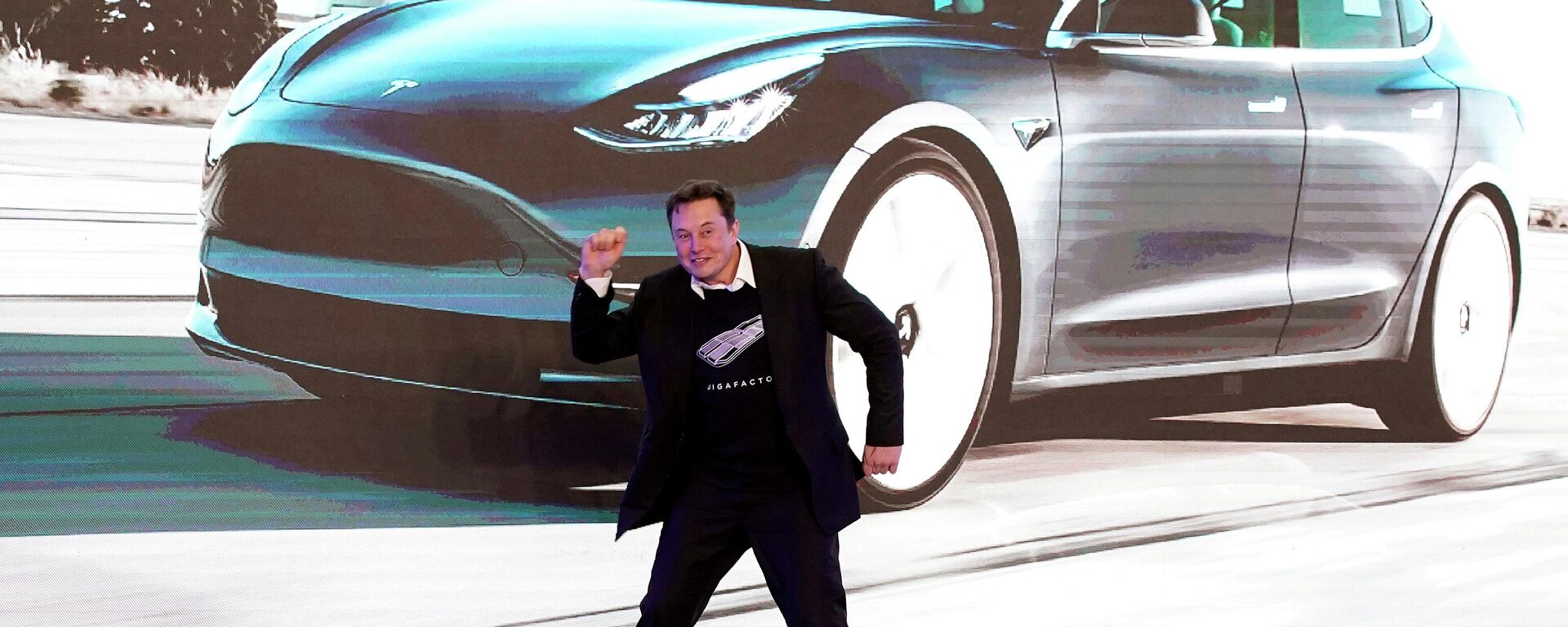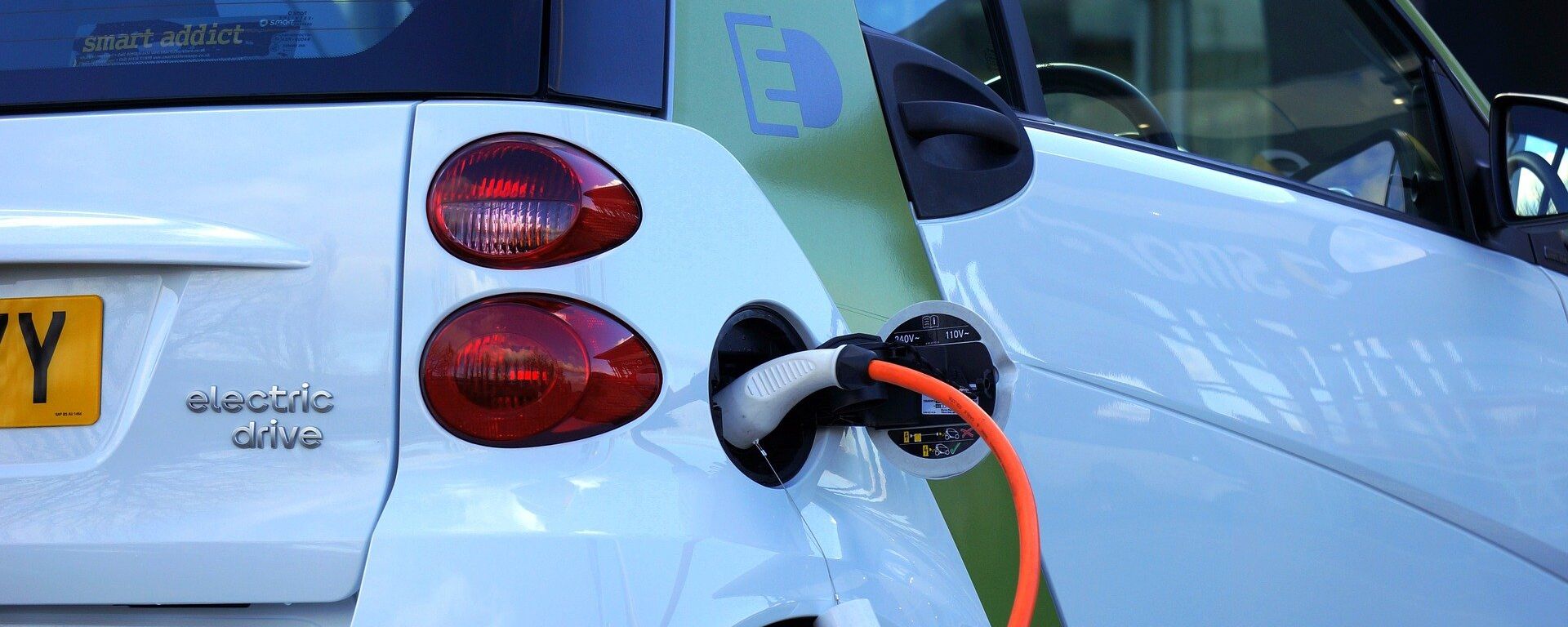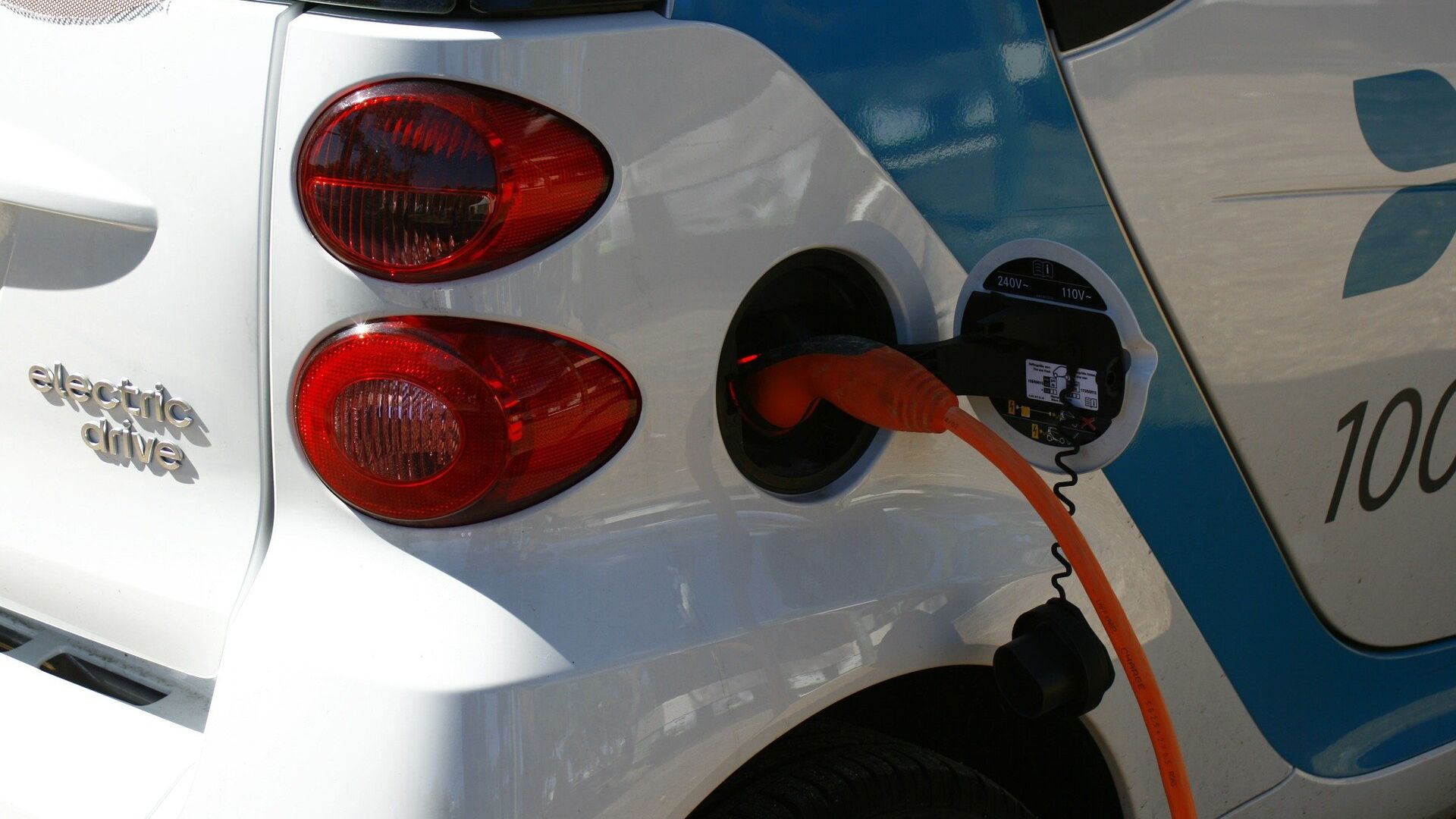https://sputnikglobe.com/20211231/made-in-india-electric-vehicles-may-be-reality-in-4-5-years-says-eeve-india-founder-1091909151.html
'Made in India' Electric Vehicles May Be Reality in 4-5 Years, Says EeVe India Founder
'Made in India' Electric Vehicles May Be Reality in 4-5 Years, Says EeVe India Founder
Sputnik International
Sputnik has reached out to Harsh Vardhan Didwania, founder and director of EeVe India, one of the fastest growing electric vehicle manufacturers in India, to gauge how the transformation in the field of EV is happening and what the future of the market could be.
2021-12-31T05:30+0000
2021-12-31T05:30+0000
2022-12-10T11:40+0000
economy
business
electric cars
economy
electric vehicles
electric bike
electric car
electric vehicles
https://cdn1.img.sputnikglobe.com/img/105591/58/1055915899_0:100:1921:1180_1920x0_80_0_0_feedb68ec30b9a62d0fdb76646983113.jpg
Sputnik has reached out to Harsh Vardhan Didwania, founder and director of EeVe India, one of the fastest growing electric vehicle manufacturers in India, to gauge how the transformation in the field of EV is happening and what the future of the market could be.Sputnik: The electric vehicle market in India is rapidly emerging. How do you see the future of electric vehicles in India? When should one expect to get a complete "Made in India" electric vehicle?Harsh Vardhan Didwania: Electric Vehicles (EVs) are going to be the biggest transformation that the automobile industry will ever witness. The world we live in today has a lot of environmental challenges, and pollution is one of the most critical among them. EVs come as a hope for the entire world to look at sustainable growth.The Indian ecosystem is gearing up to embrace EVs wholeheartedly with policymakers, corporates, start-ups, entrepreneurs, and customers being bullish about its growth.Although some of the components are still imported, the assembling is being done in India. As a nation we are increasing our manufacturing capabilities, and in the next 4-5 years we may see a fully ready industry that could produce 100% "Made in India" electric vehicles.Sputnik: Manufacturing of batteries is a big concern. How can we overcome this challenge?Harsh Vardhan Didwania: Batteries form the most critical component of EVs, and we are still not self-reliant on this front. However, there are green shoots too. If you look at the government intervention, policy framework, and industry's outlook, we are on the track to develop a robust infrastructure for the production of batteries in the country.Apart from this, the technology in the battery space is evolving rapidly which is tempting the stakeholders to invest and invent. We are in a phase of transformation and in a decade's time we will become the global hub of manufacturing.Sputnik: Apart from manufacturing, the high prices make electric vehicles out of reach for ordinary people. Is there any way to reduce the cost of EVs?Harsh Vardhan Didwania: The economics of EVs is a layered one. While we look at the capex (capital expenditure) of a product, we tend to ignore the opex (operating expense) in drawing the comparison. If you consolidate both factors of cost computation, you may find EVs much cheaper than conventional vehicles.We are currently in the first phase of development and with the economies of scale coming into play we will be able to bring the cost down significantly. Also, once the ecosystem matures, it will help in creating better products at significantly lower costs.Sputnik: What do you think can lead to a faster adoption of EVs in India? Do you think hybrid vehicles may be better in the current circumstances?Harsh Vardhan Didwania: The majority of customers in India are fence watchers who take time in accepting and adopting the transformation. While the early birds or the trendsetters have started propagating and advocating EVs, there is a behavioural change gradually seeping into the system.For faster adoption, we need to strengthen charging infrastructure, incentivise industry players and customers, and make EVs a mass movement. There are interventions that have taken place in this space but we need to move at a tiger's pace.Sputnik: With over 50 brands operating in the EV realm, how sustainable will these companies be? How likely is it that small companies and start-ups will create a playing field for giants to enter and capture the market once it's ready?Harsh Vardhan Didwania: These are the usual market characteristics. Any industry which shows promise, attracts investors and businesses. However, the success of these players depends on multiple factors such as vision of the organisation, its bandwidth, capabilities, and competence in production logistics and communication, market understanding, consumer demand, and trend analysis, and various other external factors such as evolving technology and policy changes.There is no denial of the fact that big giants do have certain advantages and many small-scale players will perish after some time due to various reasons. But what we have observed in the Indian market is that global giants have failed too in capturing and sustaining the market. So, there is no template to ensure success or failure.Sputnik: What kind of support do you expect from the government for electric vehicle makers in India?Harsh Vardhan Didwania: We expect the government to extend the subsidy and incentivise electric vehicle manufacturers to help the industry develop strong fundamentals. Access of funds at a lower cost, developing robust infrastructure, tax exemptions, and advocacy drives, etc. are a few catalysts that will help the industry flourish.The government is already working towards creating a conducive environment but the pace needs to be increased multi-fold. Also, the federal as well as state governments should jointly create a framework for the benefits of all the stakeholders.
https://sputnikglobe.com/20211021/elon-musks-tesla-reiterates-call-for-india-to-lower-import-duties-on-electric-vehicles-1090100713.html
https://sputnikglobe.com/20191128/green-lifestyle-chief-of-indias-hill-state-vows-to-make-electric-suv-his-ride-1077424243.html
Sputnik International
feedback@sputniknews.com
+74956456601
MIA „Rossiya Segodnya“
2021
Rahul Trivedi
https://cdn1.img.sputnikglobe.com/img/07e5/05/12/1082926121_0:-1:627:627_100x100_80_0_0_d882e1a63f627c25b7a534fb8b8234d7.jpg
Rahul Trivedi
https://cdn1.img.sputnikglobe.com/img/07e5/05/12/1082926121_0:-1:627:627_100x100_80_0_0_d882e1a63f627c25b7a534fb8b8234d7.jpg
News
en_EN
Sputnik International
feedback@sputniknews.com
+74956456601
MIA „Rossiya Segodnya“
Sputnik International
feedback@sputniknews.com
+74956456601
MIA „Rossiya Segodnya“
Rahul Trivedi
https://cdn1.img.sputnikglobe.com/img/07e5/05/12/1082926121_0:-1:627:627_100x100_80_0_0_d882e1a63f627c25b7a534fb8b8234d7.jpg
india, electric vehicles, indian market, eeve india, harsh vardhan didwania, "made in india"
india, electric vehicles, indian market, eeve india, harsh vardhan didwania, "made in india"
'Made in India' Electric Vehicles May Be Reality in 4-5 Years, Says EeVe India Founder
05:30 GMT 31.12.2021 (Updated: 11:40 GMT 10.12.2022) A report by RBSA Advisors, a leading independent Transaction Advisory firm, shows that the electric vehicle market in India is expected to grow at a compounded annual growth rate (CAGR) of 90 percent in this decade to touch $150 billion by 2030.
Sputnik has reached out to Harsh Vardhan Didwania, founder and director of EeVe India, one of the fastest growing
electric vehicle manufacturers in India, to gauge how the transformation in the field of EV is happening and what the future of the market could be.
Sputnik: The electric vehicle market in India is rapidly emerging. How do you see the future of electric vehicles in India? When should one expect to get a complete "Made in India" electric vehicle?
Harsh Vardhan Didwania: Electric Vehicles (EVs) are going to be the biggest transformation that the automobile industry will ever witness. The world we live in today has a lot of environmental challenges, and pollution is one of the most critical among them. EVs come as a hope for the entire world to look at sustainable growth.
The Indian ecosystem is gearing up to embrace EVs wholeheartedly with policymakers, corporates, start-ups, entrepreneurs, and customers being bullish about its growth.

21 October 2021, 14:53 GMT
Although some of the components are still imported, the assembling is being done in India. As a nation we are increasing our manufacturing capabilities, and in the next 4-5 years we may see a fully ready industry that could produce 100% "Made in India" electric vehicles.
Sputnik: Manufacturing of batteries is a big concern. How can we overcome this challenge?
Harsh Vardhan Didwania: Batteries form the most critical component of EVs, and we are still not self-reliant on this front. However, there are green shoots too.
If you look at the
government intervention, policy framework, and industry's outlook, we are on the track to develop a robust infrastructure for the production of batteries in the country.
Apart from this, the technology in the battery space is evolving rapidly which is tempting the stakeholders to invest and invent. We are in a phase of transformation and in a decade's time we will become the global hub of manufacturing.
Sputnik: Apart from manufacturing, the high prices make electric vehicles out of reach for ordinary people. Is there any way to reduce the cost of EVs?
Harsh Vardhan Didwania: The economics of EVs is a layered one. While we look at the capex (capital expenditure) of a product, we tend to ignore the opex (operating expense) in drawing the comparison. If you consolidate both factors of cost computation, you may find EVs much cheaper than conventional vehicles.
We are currently in the first phase of development and with the economies of scale coming into play we will be able to bring the cost down significantly. Also, once the ecosystem matures, it will help in creating better products at significantly lower costs.
Sputnik: What do you think can lead to a faster adoption of EVs in India? Do you think hybrid vehicles may be better in the current circumstances?
Harsh Vardhan Didwania: The majority of customers in India are fence watchers who take time in accepting and adopting the transformation. While the early birds or the trendsetters have started propagating and advocating EVs, there is a behavioural change gradually seeping into the system.

28 November 2019, 09:26 GMT
For faster adoption, we need to
strengthen charging infrastructure, incentivise industry players and customers, and make EVs a mass movement. There are interventions that have taken place in this space but we need to move at a tiger's pace.
Sputnik: With over 50 brands operating in the EV realm, how sustainable will these companies be? How likely is it that small companies and start-ups will create a playing field for giants to enter and capture the market once it's ready?
Harsh Vardhan Didwania: These are the usual market characteristics. Any industry which shows promise, attracts investors and businesses.
However, the success of these players depends on multiple factors such as vision of the organisation, its bandwidth, capabilities, and competence in production logistics and communication, market understanding, consumer demand, and trend analysis, and various other external factors such as evolving technology and policy changes.
There is no denial of the fact that big giants do have certain advantages and many small-scale players will perish after some time due to various reasons.
But what we have observed in the Indian market is that global giants have failed too in capturing and sustaining the market. So, there is no template to ensure success or failure.
Sputnik: What kind of support do you expect from the government for electric vehicle makers in India?
Harsh Vardhan Didwania: We expect the
government to extend the subsidy and incentivise electric vehicle manufacturers to help the industry develop strong fundamentals.
Access of funds at a lower cost, developing robust infrastructure, tax exemptions, and advocacy drives, etc. are a few catalysts that will help the industry flourish.
The government is already working towards creating a conducive environment but the pace needs to be increased multi-fold. Also, the federal as well as state governments should jointly create a framework for the benefits of all the stakeholders.





